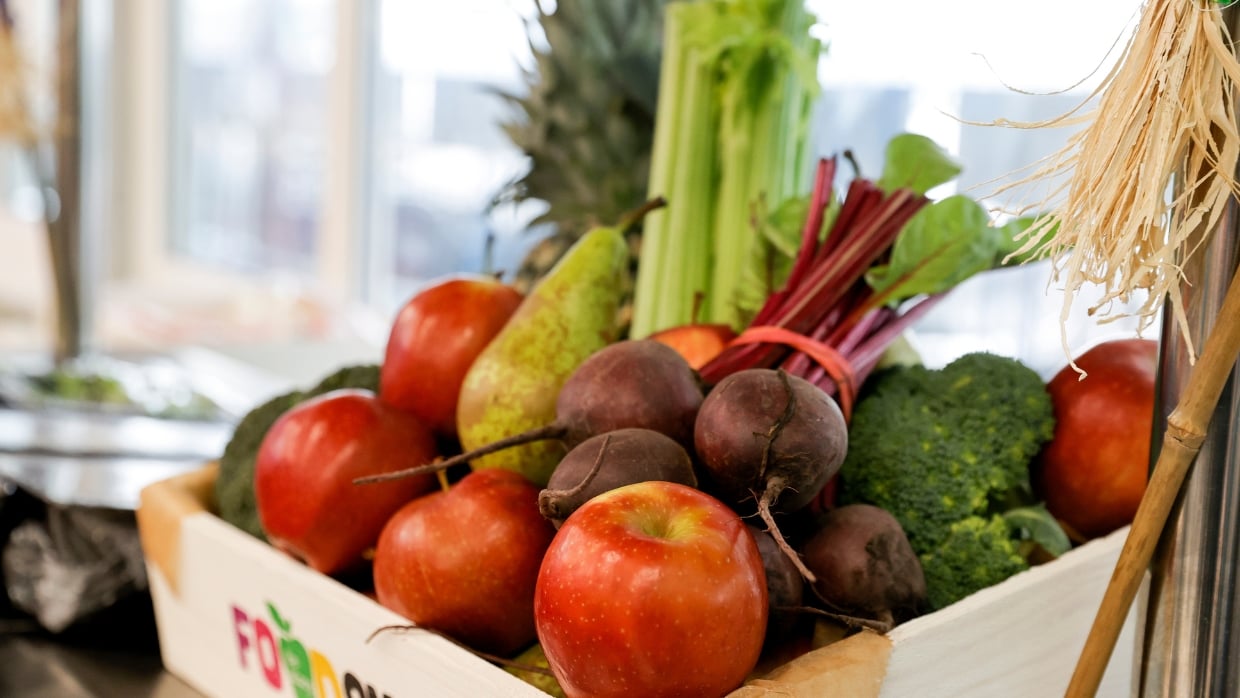
Getting more meat free and plant-based dishes on school menus
David Mulcahy is Sodexo’s Food Innovation & Sustainability Director for Schools & Universities in the UK. He shares his thoughts on the challenges of introducing more meat free and plant-based dishes in schools and universities, and some of Sodexo's successful approaches and solutions.
Walk down any UK high street and you can’t fail to notice the increase in vegetarian, vegan and plant-based offers springing up. Consumers are embracing diets that are healthier and more sustainable, and this trend is reflected in our schools and universities catering services too.
We know that Generation Z are increasingly turning towards vegan and plant-based dishes to improve their health and reduce their impact on the environment. That’s why Sodexo has committed to at least one third of our menus being plant-based by 2025, and we’re already well on track to meet this target.
The challenges in more meat free and plant-based menus in the public sector
School meals need to be cost effective, and suppliers are commonly start-ups who can bring innovative products and ingredients to our chefs, but often with a higher price tag. We also need to be mindful that any new ingredients we introduce into our menus for young people meet standards for salt, sugar and fat intake. While this isn’t commonly an issue for plant-based foods, protein and meat alternatives can have higher levels and there’s sometimes even a question from schools and diners about exactly what these alternatives are made of.
So while there are things we need to keep in mind, our push to provide school meals that reflect the trends, promote healthier eating, taste delicious and provide varied and appealing food for our pupils, remains the focus.
We face the challenges in a number of ways and these are some of the initiatives and solutions that work for us.
Sharing ideas, ingredients and inspiration
I’m involved in a number of events and exhibitions that discuss public sector catering trends, sustainable food options and how we can encourage people to try a range of plant-based dishes and ingredients. It’s a great way to gather and share insight and best practice with suppliers, our chefs and the wider industry.
Making food fashionable and familiar
Making food fashionable helps with engagement, as more young people are looking for ‘Instagrammable’ dishes they can share on social media channels. We should deliver a wow factor but also to serve food that feels familiar which encourages pupils to try dishes with different ingredients.
For example, we know that young children love southern style fried chicken, so how do we create a delicious nutritious meat-free alternative that kids will love? Strong supplier partnerships, pop-up food stands and theme days help us to create that much-needed buzz.
Partnering with the experts
At a masterclass event last year we invited chefs along to explore ways to be more adventurous with Quorn, and an array of plant-based ingredients, hosted by two chefs making waves in the plant-based culinary world, Chantelle Nicholson and Kirk Haworth.
Focusing on plant-based, planet-friendly ingredients and encouraging our chefs to be more adventurous
Future 50 Food ingredients feature in all our school and universities menus. These are high nutritional value ingredients that are accessible, affordable, full of flavour, have a low environmental impact and reduce our reliance on animal-based proteins. In fact we’ve set the Future 50 foods at the heart of 2022’s Sodexo Chef of the Year competition, to help ignite our chefs’ passion these sustainable ingredients. We encourage our chefs to enter in industry live cooking competitions, such as the StrEAT Food Awards, are also working alongside The Humane Society International UK to develop a unique series of training modules with a plant-based focus.
Inspiring and training our chefs to think and cook meat-free and plant-based will help them understand how to work with the wide range of ingredients and provide delicious, healthy, and nutritious food choices for our young people that are also kind to the planet.
Discover the five fundamentals
Better food can create a brighter future for children and young people. As they become increasingly aware of issues such as nutrition, climate change and food waste, school leaders have an opportunity to help establish lifelong healthy habits.
Providing a varied, balanced and nutrient-dense diet is one of five fundamentals that should matter most to school leaders in the health, nutrition and provision of school meals.